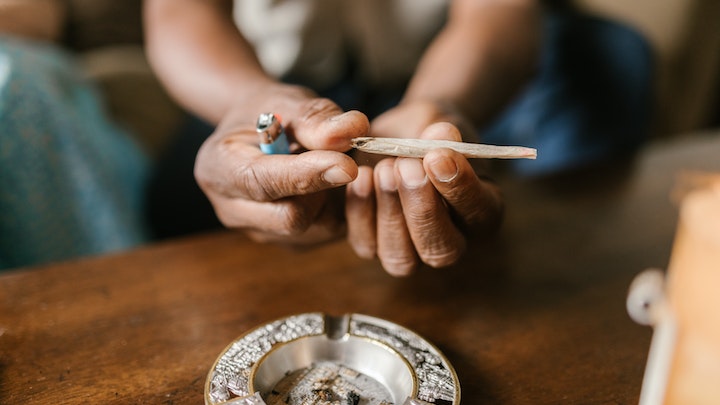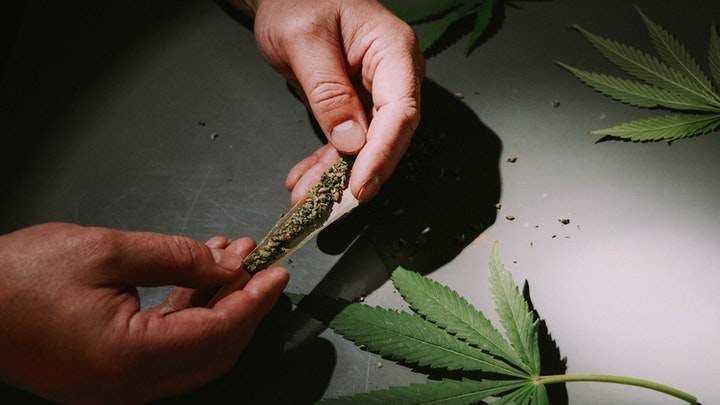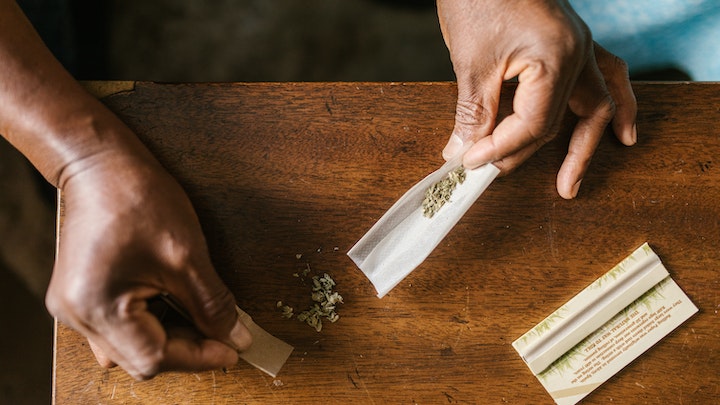Years of research and study have concluded that cannabis does have a formative impact on the development and state of the brain.
The impact that cannabis use has on the brain is especially pronounced in teenagers. This is because during the period between early adolescence and young adulthood, the brain is still in key stages of development.
The use of cannabis interferes with this development, though the way in which it does so is complex, and has been the subject of years of rigorous research and study.
In order to fully understand the effects of cannabis on the teenage brain, and why the topic matters, it is also important to consider peripheral questions which are also relevant.

The Office for National Statistics estimates that close to one-fifth of 17-year-olds in the UK have used cannabis over the course of a year, while another study suggests that almost a third of 17-year-olds have tried the drug.
However, the drug use numbers are not equally distributed across all cohorts. Girls are less likely to have used the drug than boys of the same age, while white teenagers are more likely to have used cannabis than black teenagers.
The numbers for cannabis use are the highest for any illicit drug, and numbers are lower for other well-known drugs like cocaine, heroin, and MDMA.
This means the use of cannabis among teenagers is a substantial social problem, due to its variety of adverse effects on cognitive development and its links to other negative outcomes.

There are lots of factors that shape the reasons why teenagers use cannabis.
Primarily, the use of cannabis is regarded as being social. It is often used in social situations, like parties or gigs, in a similar way to alcohol.
In these situations, teenagers might feel the influence of peer pressure to use the drug. Alternatively, they might use the drug in order to fit in, if they perceive that using the drug is ‘normal’.
Cannabis is also used by some teenagers to relieve feelings of boredom. However, this is counterproductive as the use of the drug is correlated with a loss of motivation and an increase in social isolation in the long term.
Teenagers who struggle with mental health conditions, such as anxiety, clinical depression, or OCD, sometimes use cannabis as a form of self-medication.
This is because the cannabinoid compound CBD, found in cannabis, can trigger a relaxed response, and temporarily reduce levels of stress and anxiety.
However, the use of cannabis as a treatment for mental health conditions is not recommended by the NHS, and it isn’t fully understood what the long-term impact of taking CBD in isolation has on the body either.

Neuroscience is an extremely complicated topic, which people spend years studying. Even the world’s foremost experts on the topic acknowledge that the field is still developing, and there is little that can be described as settled science.
However, there is an understanding of how neuroscience is related to the teenage brain.
Here are the important facts to keep in mind when considering the effects of cannabis on the teenage brain:

So how does cannabis interact with the neuroscience of the teenage brain, and what real-world impact does that have on a teenager?
The use of cannabis interferes with the development of the prefrontal cortex, and reduces its volume. Specifically, this is due to the cannabinoid THC. Exposure to THC, as someone with a prefrontal cortex which is still developing, delays the development of the prefrontal cortex.
The extent of drug use does impact the extent of the interference with the prefrontal cortex and its development.
A 16-year-old who has only ever used cannabis once will not experience the same impact of cannabis on their prefrontal cortex as someone of the same age who has been using the drug every day for two years.

As the prefrontal cortex relates to behaviour, the effects of cannabis on it are likely to be a direct cause of different behaviour in people who have used the drug as a teenager.
Though more research still needs to be conducted in this area specifically, it is clear that people with reduced prefrontal cortex (or delayed maturation) will be less able to execute decision-making effectively.
Instead, the amygdala will play a larger role in the decision-making processes. This means that decisions will come with more risk, and will be more driven by emotion rather than rational planning.
Therefore, people who used cannabis throughout their teenage years could be more likely to engage in risky behaviour than people who didn’t use the drug.

Cannabis use during the teenage years also impacts the brain and cognitive development in other ways. The main factor that teenagers and parents might want to consider, other than stunted development of the prefrontal cortex, is a significant drop in IQ.
A research study on the effects of cannabis in teenagers was able to observe that teenagers who used cannabis heavily throughout their teenage years suffered from a drop in 8 IQ points when they reached adulthood.
People who used the drug in their teens less heavily still saw a drop in IQ points, but not one that was so dramatic.
In comparison, people who did not use cannabis at all throughout their teenage years generally saw an increase in their IQ by the time they reached adulthood of one point.

Cannabis can have a hugely detrimental impact on academic performance.
Firstly, the prolonged use of the drug is related to a drop in IQ, as mentioned above.
Obviously, this is important for teenagers as it has direct and serious implications for academic performance in the short term, as well as having longer-term implications regarding attending college and university. However, other than the decrease in IQ, cannabis also impacts academic performance in a wider variety of ways.
Cannabis is highly associated with declines in the levels of motivation, sustained interest, and concentration.
This means that teenagers who use cannabis or who have a history of cannabis use or misuse also have higher dropout rates, and are less likely to complete their education.
Combined, all these impacts resulting from the use of cannabis affect academic performance, and therefore life chances.

Cannabis doesn’t just impact IQ and academic performance, however. Use of the drug is also strongly linked with the development of serious mental health conditions like depression and anxiety. These mental health conditions can have serious repercussions on the lives of teenagers, and can lead to very worrying outcomes.
The continued use of cannabis is also associated with loneliness and social withdrawal. This is because the drug can contribute to a loss of interest in previously enjoyable activities, and can make it hard for a teenager to be motivated to try new activities or even pursue old commitments.
Also, it is possible to become dependent on or addicted to cannabis. This can come with a huge wave of consequences, like financial instability and the breakdown of important social relationships.
Finally, cannabis can also be the beginning of wider drug use. Cannabis is regarded as a gateway drug, and this means that often people who start using cannabis will progress to using harder drugs in the future like cocaine, MDMA, or heroin which pose a threat to health, and also risk addiction.
These drugs also come with an increased risk of involvement with the police, which can begin a path of criminal involvement which can be destructive.

The impact of cannabis use on cognitive functioning can be serious, especially when the drug is used throughout adolescence and young adulthood.
Unfortunately, it is not clear that abstinence from cannabis will cause cognitive functioning to revert to what is considered ‘normal’, and some evidence points to the fact that the disruption to the brain is permanent.
This isn’t to say that abstaining from cannabis will not have any benefits. Not using the drug will reduce your risk of mental health conditions, and improve your quality of life more broadly by letting you feel more: healthy, in control, and positive.

There is no general medical treatment for the use of cannabis, however if someone is addicted to or dependent on the drug, rehabilitation centres can help them to break their addiction and avoid drug use in the future.
This is done through psychological therapy and support. Therapies like CBT are commonly used to help a person combat addiction by understanding the cause of it and helping to promote changes in behaviour going forward.
Support groups will help you to stay abstain from the drug through motivation and guidance from fellow people with a history of the drug.

It can be useful to compare the impact of cannabis to another substance, like alcohol, to better understand its consequences.
It’s clear that excessive drinking is not healthy for teenagers or mature adults, and like cannabis, it can have implications for the functioning of the brain.
One study compared the impact of the substances on brain health by examining their impact on the structure of grey or white matter. Alcohol did change the structure of the grey or white matter, in both teenagers and adults, while cannabis had a more limited impact.
However, the study did not take into account the long-term impact on factors like decision-making or cognition more broadly.
What is clear is that both substances impact the brain negatively, albeit in different ways.

In summary, cannabis is linked to the following effects on the teenage brain:
A reduction in the volume of and development of the prefrontal cortex – can impact decision-making and contribute to more risky behaviour.
A decrease in IQ – teenagers who used the drug heavily were found to have sustained an 8-point drop in IQ by the time they reached adulthood.
A higher chance of developing mental health conditions – depression, anxiety, and the development of psychotic illnesses was linked with the use of cannabis.
[1] Cannabis and depression
https://pubmed.ncbi.nlm.nih.gov/33332004/
[2] Effects of cannabis on the adolescent brain